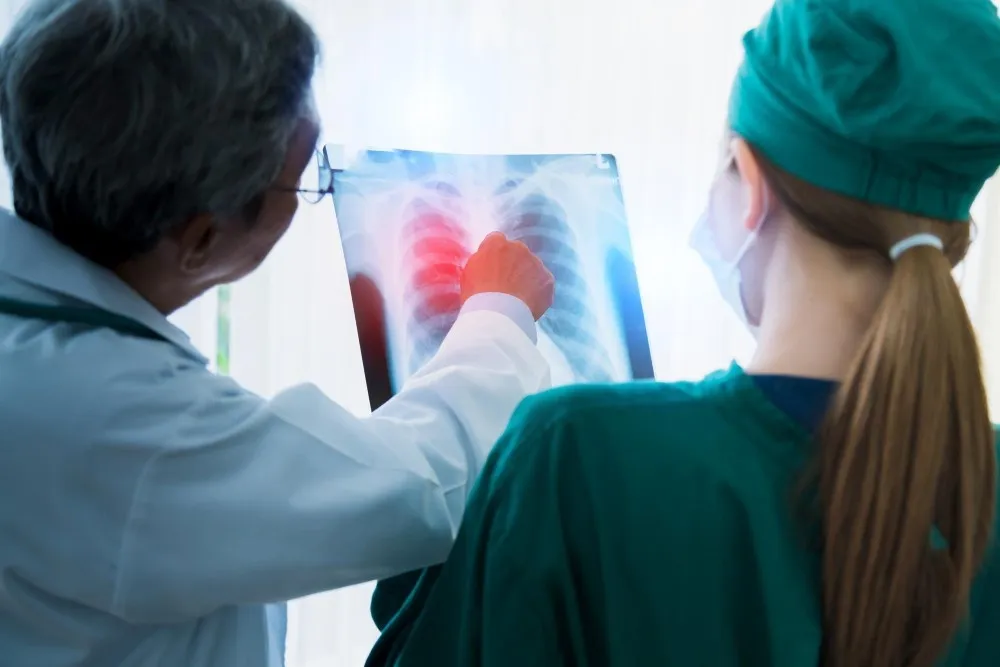What is a malignant stomach tumour ?
The stomach is a hollow organ in the upper abdomen, part of the digestive system. Food reaching from oesophagus becomes liquid in the stomach before being pushed into the small intestine. The wall of the stomach is divided into five layers:- Inner layer or mucosa
- Submucosa
- Muscle layer
- Subserosa
- Serosa (outer layer)
- Invade nearby tissues and organs
- Spread to other parts of the body
- Be life threatening
- Stomach cancer usually begins in the cells of the inner layer and invade deeper over time into the stomach wall. A stomach tumour can grow through the stomach's outer layer into nearby organs like the liver, pancreas, oesophagus or intestine.
- It can spread to the lymph vessels and surrounding lymph nodes (stomach has a rich network of lymph vessels and nodes). As the stomach cancer advances, it can travel through the bloodstream and spread to organs like liver, lungs and bones.
- Adenocarcinoma
- Primary gastric lymphoma
- Gastrointestinal stromal tumours (GISTs)
- Metastatic deposits
- Carcinoids
What are the causes of the disorder?
Exact causes of stomach cancer are unknown. However, certain risk factors make some people more prone to stomach cancer than others. Risk factors include:- Helicobacter pyroli infection - H. pyroli is a bacterium that commonly infects the inner lining or mucosa of the stomach, causing inflammation and peptic ulcers.
- Chronic inflammation of stomach - Conditions associated with long-term stomach inflammation like pernicious anaemia or those with part of their stomach removed are at an increased risk of stomach cancer.
- Family history - Persons with close relatives having a history of stomach cancer are also at higher risk.
- Smoking - Smokers are more likely to develop stomach cancer.
- Poor lifestyle choices - Poor diet, lack of physical activity and obesity increases the risk of stomach cancer.
What one needs to know about symptoms or signs?
Symptoms of stomach cancer only develop as it progresses to more advanced stages. Most common symptoms include:- Pain or discomfort in abdomen
- Difficulty swallowing
- Nausea and vomiting
- Feeling bloated even after a small meal
- Weight loss
- Blood during vomiting or blood in stool
Which specialist should be consulted in case of signs and symptoms?
Upon experiencing symptoms, a patient must consult a gastroenterologist (doctor who specialises in gastrointestinal diseases), who may refer the patient further to an oncologist (cancer specialist).What are the screening tests and investigations done to confirm or rule out the disorder?
The doctor asks a patient about his/her personal and family medical history and recommends tests for confirmation. These include:- Physical exam - The doctor feels the abdomen for fluid or swelling, along with any swollen lymph nodes.
- Endoscopy - A thin, lighted tube (endoscope) is guided through the mouth and oesophagus into the stomach. The throat is numbed beforehand using an anaesthetic spray.
- Biopsy - An endoscope has a tool that can remove tissue. A pathologist checks the stomach tissue for cancer cells.
- Stage III: The cancer has invaded the muscle layer or subserosa and spread to 7-15 lymph nodes, OR the tumour has penetrated the outer layer and spread to 1 to 15 lymph nodes, OR the tumour has invaded nearby organs like the spleen, liver or colon and cancer cells have not spread to lymph nodes or distant organs.
- Stage IV: The cancer could have spread to more than 15 lymph nodes, OR the tumour had invaded nearby organs and at least one lymph node, OR the cancerous cells have spread to distant organs.
What treatment modalities are available for management of the disorder?
Treatment options depend on the size and location of the cancer and the patient's general health, and could be carried out in form of chemotherapy, radiation therapy or surgery, or a combination of more than one treatment methods. Depending upon the metastatic stage of the stomach cancer, treatment may be as follows: Stage III stomach cancer treatment: Options include- Total gastrectomy surgery
- Gastrectomy followed by chemo radiation therapy
- Chemotherapy therapy before and after surgery
- Chemo radiation therapy
- Targeted drug therapy using a monoclonal antibody in combination with chemo radiation
- Laser therapy or stent placement to relieve stomach blockage
- Bypassing stomach blockage through gastrojejunostomy surgery
- Radiation therapy to stop bleeding or to shrink a stomach-blocking tumour
- Combination of chemo radiation therapy
How can the disorder be prevented from happening or recurring?
Taking care of certain lifestyle choices can help control one's risk for developing stomach cancer. These include:- Avoiding excess smoked food, salty meat and pickled vegetables.
- Avoiding food that has not been refrigerated properly.
- Eating a high-fibre, low-starch diet.
- Quitting smoking.
- Limiting alcohol intake to two drinks a day.
- Tackling obesity.

Reviewed by







